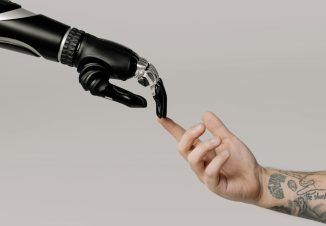
For decades, technology and automation have catalysed massive economic growth and driven improvements in working conditions for many. At the same time, they have also been a source of pessimistic forecasts about the destruction of jobs. Still, history shows us that as humans we have always managed to reinvent ourselves. A recent report by Goldman Sachs estimates that Artificial Intelligence could replace as many as 300 million jobs, while creating only 97 million over the same period. In this context, the question of a tax on robots has come up again.
A robot tax is a proposed or implemented tax policy that seeks to raise revenue based on the use of technological devices or automated systems in the workplace. The idea behind a robot tax is to generate revenue for governments and address some of the possible social costs arising from automation.
Asked to consider the pros and cons of a tax on AI, ChatGPT offered the following comment:
‘It’s important to note that implementing an AI tax raises several challenges. Determining what constitutes AI and how it should be taxed, ensuring fairness and avoiding unintended consequences, and striking a balance between encouraging innovation and addressing societal concerns are all complex considerations that need careful thought and analysis’.
South Korea is the only country that applies a robot tax, which has been in place since 2017. The Korean measure takes the form of a reduction in tax incentives for companies that use robots as part of their operations.
That same year, while the European Parliament voted for EU-wide legislation to regulate the development and ethical use of robots and artificial intelligence, it rejected the idea of introducing a robot tax to address some of the possible negative consequences for the job market.
Six years later, with the AI Act, the EU is about to introduce regulations that aim to ensure the human-centred and ethical development of artificial intelligence in Europe. The proposed measures do not include any kind of tax on robots.
In December last year, an MIT study found that a tax on robots set at between 1% and 3.7% of their value would help combat the effects of automation on income inequality in the United States. It is worth noting that this study did not consider the desirability of introducing a robot tax, but simply considered the question using a statistical approach.
The question of whether or not to tax robots around the world is a complex and multi-faceted issue requiring careful consideration. While there are cogent arguments on both sides, it is clear that taxing robots could have significant implications for society, the development and deployment of new technology, and the world of work.
From a legal point of view, implementing such a scheme would involve defining what robots and AI systems are for tax purposes, fixing criteria and tax rates, determining jurisdictional considerations, and ensuring compatibility with existing tax laws. It is likely that such a policy would inhibit innovation, at least to some extent, in pursuit of wider (and politically controversial) social goals. It would require a comprehensive approach that would need to be introduced gradually, most likely through regulations at the European level.


